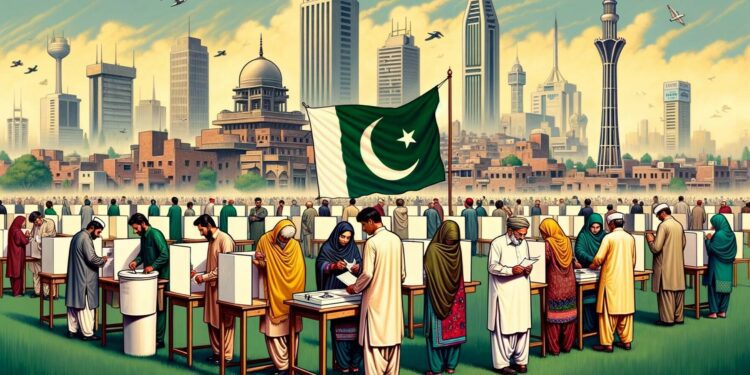As Pakistan prepares to head to the polls, the looming shadow of former Prime Minister Imran Khan’s imprisonment casts a pall over the electoral landscape. Despite the nation’s grappling with an economic crisis and other pressing challenges, the focus remains on the political drama unfolding at the highest levels of government.
The nation, home to 241 million people, finds itself grappling with skyrocketing inflation and an economy teetering on the brink of collapse, exacerbated by a stringent International Monetary Fund (IMF) bailout program. Meanwhile, the specter of Islamist militancy looms large, and diplomatic relations with neighboring countries such as India, Afghanistan, and Iran are strained.
However, amidst these pressing concerns, the electoral discourse has been largely dominated by personalities rather than policy issues. Both Imran Khan’s Pakistan Tehreek-e-Insaf (PTI) party and Nawaz Sharif’s Pakistan Muslim League-Nawaz (PML-N) vie for dominance, with millions of Khan’s supporters rallying behind him despite allegations of a military-backed crackdown on his party.
The power dynamics between the military and political factions further complicate the electoral landscape. Analysts suggest that Sharif, once ousted from power, is now backed by the military establishment, leading to a clash of victimhood narratives between the two former prime ministers.
Meanwhile, other contenders, such as Bilawal Bhutto Zardari, offer alternative visions for the country’s future, promising a return to stability and prosperity. Yet, amidst the political posturing, crucial issues such as the economy and security concerns in border regions have been conspicuously absent from the electoral discourse.
As Pakistan braces for a potentially hung parliament, the prospect of coalition government looms large, raising concerns about the efficacy of decision-making in the face of mounting crises. With the economy teetering on the brink and security challenges looming large, the incoming administration faces an uphill battle in charting a path forward for the nation.
In the face of widespread apprehension about the credibility of the electoral process, stemming from concerns about low voter turnout and allegations of repression, Pakistan stands at a critical juncture. The outcome of the election will undoubtedly shape the nation’s trajectory for years to come, determining its ability to navigate the myriad challenges it faces on the domestic and international fronts.
















